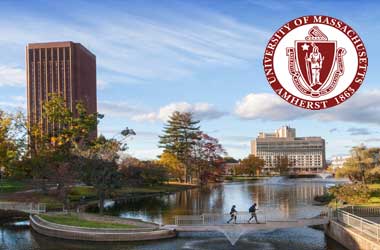 The Massachusetts Gaming Commission (MGC) has granted a contract worth $1 million annually to a research team from the University of Massachusetts Amherst, who plan to study the impact of gambling in the state.
The Massachusetts Gaming Commission (MGC) has granted a contract worth $1 million annually to a research team from the University of Massachusetts Amherst, who plan to study the impact of gambling in the state.
The grant will kick in for three consecutive years and comes on the heels of large commercial casinos opening in Massachusetts.
The team’s contributions will be part of the MGC’s larger gambling investigation, set to take place over 12 years. The team will be eligible for two renewals after the first three-year period is finished.
Rachel Volberg is the lead investigator for the UMass team, in addition to being a research professor and epidemiologist in the university’s School of Public Health & Health Sciences. She stated that the team’s aim is to chart the impact of gambling on the state in the wake of legalization. Volberg stated that the team’s research could be especially helpful in preventing problem gambling.
The team has already completed the first phases of the project, which dealt with baseline conditions in Massachusetts, before the completion of Encore Boston Harbor and the MGM Springfield casinos. The earlier phases of the team’s research received $3.64 million in funding.
One of the team’s previous findings came from data obtained from the Plainridge Park Casino in Plainville. Their research showed that the casino’s presence did not result in increased problem gambling rates but instead increased jobs and other economic advantages in the area. However, the research did show increased personal spending in casinos. The team noted that their findings may be biased by Plainville’s proximity to casinos in Connecticut and Rhode Island.
Social and Economic Impact of Gambling
The new phases of the study will go deeper into the social and economic impact of the casinos in the state. The team will collect data from adults in Massachusetts regarding their gambling habits. The focus will mostly be on the different types of gambling activities they have participated in the last 12 months, the amount of money they spent, how often they gambled, as well as if they have experienced struggles with substance abuse or mental health illnesses.
The funds allocated to the team’s study are set to be earmarked for the team members’ salaries and fringe, travel costs, supplies, and subcontracts. The team will be comprised of six members of the UMass faculty and staff, and one graduate research assistant. The final results of the study could play a major role in whether Massachusetts limits the number of casino licenses going forward.

